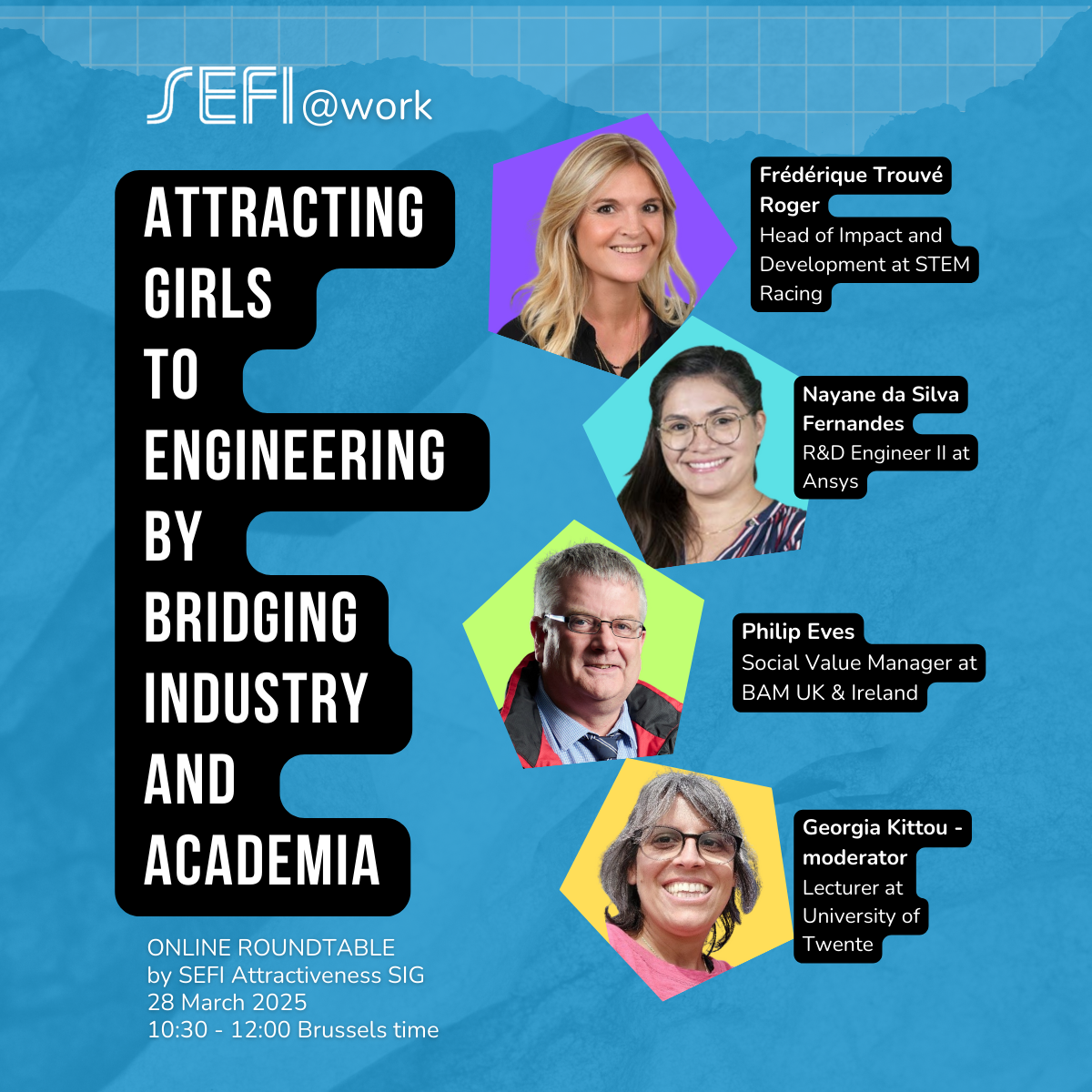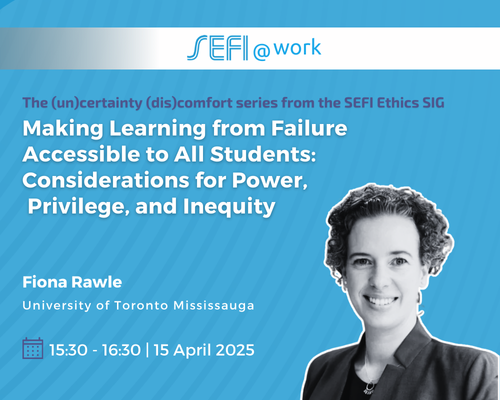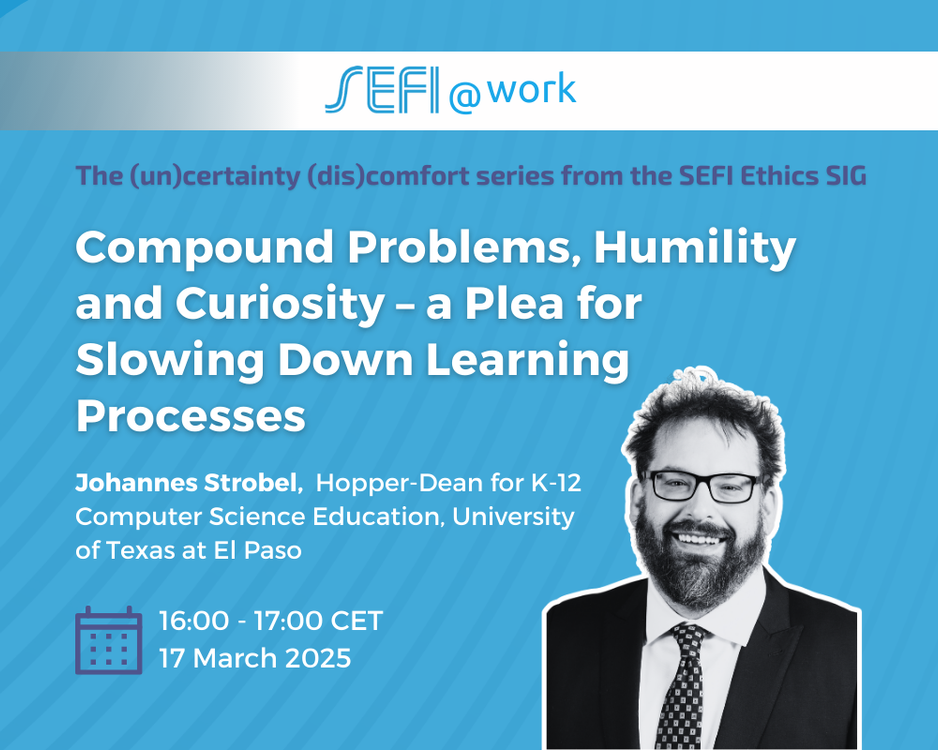28 March 2025, 10:30-12:00 CET
In this webinar, SIG Attractiveness gathers experts from different countries at a virtual roundtable to share best practices and learnings from both industry and academia on how to attract girls to pursue engineering careers.
Date and Time: December 11th 13:30 to 14:30 CET
This 1-hour SEFI@work webinar run by the Diversity Equity and Inclusion SIG invites you to join a conversation about increasing inclusion at SEFI conferences.
Participating in conferences is an important part of an academic career. In addition to getting an opportunity to network and discuss developments in the field, participating in conferences can have an impact on career trajectories including access to funding. However, multiple studies have shown that barriers to attendance and participation at conferences exacerbate inequities. Addressing these disparities is an ethical imperative to ensure that academic knowledge production is inclusive and representative of diverse voices. How do the structures of conferences work to perpetuate inequities and how can they be improved? Identifying potential barriers is a key step towards mitigating these issues which run counter to social justice and equity.
This SEFI@Work webinar is intended to facilitate further conversation about what we can do individually and collectively to contribute to making the SEFI conference more inclusive. It will consist of a short talk by Dr. Joelyn de Lima (EPFL) who will present a review of the literature and current practices biology-themed conferences have implemented to reduce barriers. There will then be an opportunity to share further ideas and explore how we can apply them within the SEFI community.
Before that, we encourage you to become involved in starting the conversation by completing a survey about your experiences at previous SEFI conferences (https://redcap.link/SEFI). This survey is not just an academic endeavour, as the data will leverage to make changes for SEFI 2024.
Speaker:
Dr. Joelyn de Lima (EPFL) will share some good practices from biology research and biology education research conferences. Joelyn is currently a pedagogical advisor at EPFL, Switzerland and a visiting scientist at the W.K. Kellogg Biological Station, Michigan State University, USA. Her background has given her a unique blend of perspectives – in terms of culture (She has lived, worked, and taught on 3 continents), theoretical grounding (natural sciences and education), and practice (research & education, formal & informal education, K-12 & university level). Her current research and teaching focuses on increasing inclusivity in higher education. (joelyn.delima@epfl.ch)


